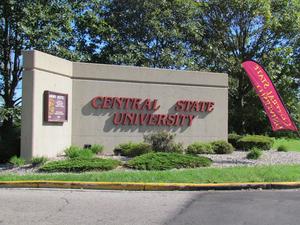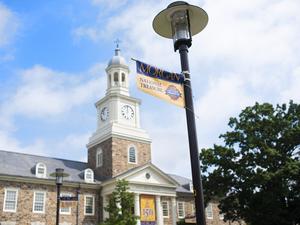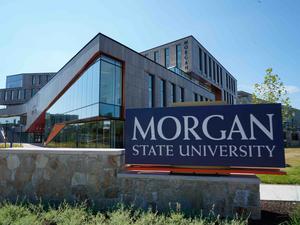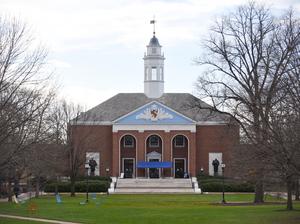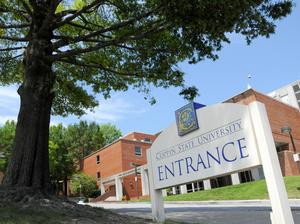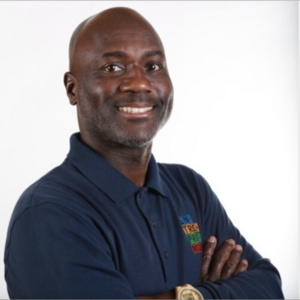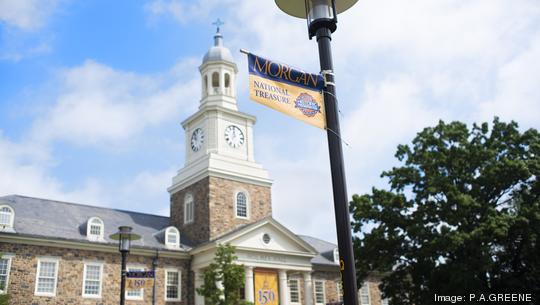
A $28 million NASA research award to Morgan State University. A business incubator located within a residence hall at Bowie State University. New maker space and startup space at Coppin State University.
Those were just a few of the examples cited by presidents of three Historically Black Colleges and Universities in Maryland when they spoke to Baltimore leaders Monday about entrepreneurship and innovation.
While all three of those HBCUs — Morgan State, Coppin State and Bowie State — have histories as teachers’ colleges dating back more than a century, their presidents say they’re preparing students for an increasingly entrepreneurial and changing economy.
They spoke Monday morning at a virtual Q&A held by the Greater Baltimore Committee as part of its Newsmaker Speaker Series.
Aminta Breaux, president of Bowie State, said the number of applications to the school has risen by 71% since 2017 and student enrollment has also grown significantly.
Breaux touted the school’s programs in computer science, cybersecurity, artificial intelligence and visual digital media arts. She said Bowie State teachers emphasize adaptability, with students needing to be prepared for rapidly changing career fields.
“Our answer here at Bowie State University is equipping students with an entrepreneurial mindset,” Breaux said. “They themselves have to be prepared to innovate.”
The school has a residence hall for more than 500 students that is built around innovation and features an Entrepreneurship Academy and space for startups.
Anthony Jenkins, president of Coppin State University, said the school has recently added makerspace, space for startups, executive conference rooms and other wraparound services for startups. Jenkins said the school is focused on helping not just its own students but the West Baltimore community as a whole.
“We are committing to transforming lives and generations here at Coppin State,” Jenkins said. “I have said repeatedly that if West Baltimore and Maryland is going to rise, it is important that we focus on the lowest economic quartile.”
Jenkins also said that Coppin State is the most affordable four-year college in Maryland — and the school wants to drive down the cost even further. He noted that the school used some federal pandemic relief funds to that end, which included a $1,200 credit for every student.
David Wilson, president of Maryland’s largest HBCU, Morgan State, spoke last. He highlighted the new research deal with NASA and said that Morgan State leads the country in graduating Black electrical engineering. The school is also offering new, innovative degree programs, he said, like cloud computing and mechatronics — a combination of mechanical and electrical engineering. Wilson said the school is also considering making computer science a required class for every student.
Morgan State has more students enrolled than ever before, Wilson said, and he envisions the university will be an anchor institution of Baltimore, similar to Wayne State University in Detroit or Temple University in Philadelphia.
Morgan State, Coppin State and Bowie State, plus the state’s fourth HBCU, the University of Maryland Eastern Shore, will soon be splitting the first of 10 annual payments totaling $555 million as part of a settlement with the state of Maryland. The settlement stems from a 2006 lawsuit resolved earlier this year that alleged underfunding hurt the competitiveness of certain academic programs compared to those at traditionally white schools.
Wilson said he appreciates those funds, noting that Morgan State will get $15 million in the upcoming fiscal year. Still, he stressed that for Maryland to have a system of higher education that is competitive nationally, it cannot be a tiered system.
“This is the first step in addressing what has been a historic inequity in higher education in Maryland,” Wilson said. “We do think there are additional steps that need to be taken in the future.”
